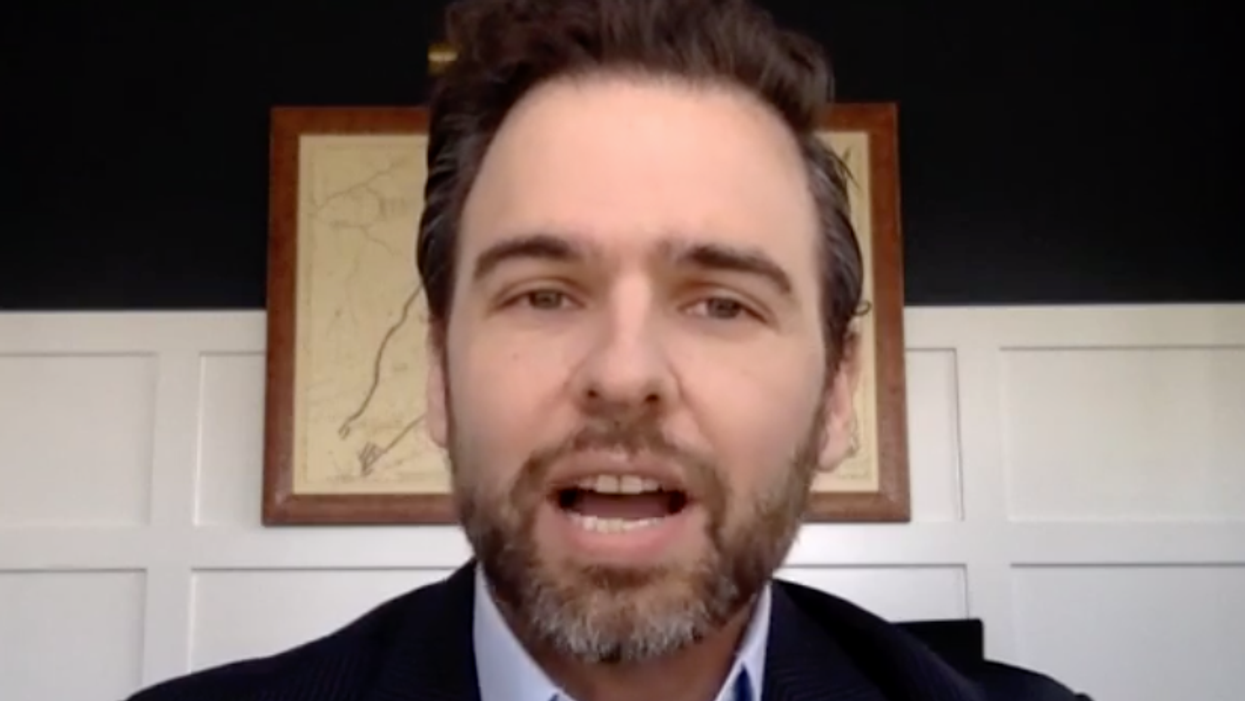This Is Bondi Justice: Coddle The Terrorist And Punish The Prosecutors
By now, you may have heard of the latest Orwellian move by the Department of Justice. Two federal prosecutors have been put on administrative leave for the great sin of mentioning in a sentencing memo a defendant’s participation in the January 6 insurrection attempt.
It’s Orwell mixed with Macbeth, really, because it encompasses the paranoia and descent into post-crime madness of the Thane of Cawdor.
Let’s start with the defendant in question, Taylor Taranto, and his series of violent and pernicious crimes, apart from his participation in January 6, where he breached the Capitol building. After returning home to Washington state, he spread conspiracy theories about the attack. In 2023, Taranto staged a hoax by live-streaming that he had outfitted his car with a detonator and he was going to blow it up at the National Institute of Standards and Technology.
The next day, he drove to a residential neighborhood in Washington, D.C., while live-streaming himself making threats, including suggesting he would detonate a car bomb. Around the same time, Trump published the purported address of Barack Obama on his social media platform (we should pause a moment to try to take that in—as a presidential candidate, Trump published for his MAGA hordes a former President’s address), and Taranto read and reposted it.
He then drove through Obama’s neighborhood, live-streaming that he was searching for tunnels that would let him get to the former President. The Secret Service showed up and he fled, leaving behind a van full of illegal weapons: a CZ Scorpion, a pistol, and hundreds of rounds of ammunition.
There’s more, but you get the idea. This guy is more than a garden-variety insurrectionist, if there is such a thing. He is, in fact, a terrorist, looking to intimidate citizens to further his far-right political agenda.
After unsuccessfully arguing that his other crimes should be covered by Trump’s pardon, Taranto went to a bench trial (i.e, the judge, not a jury, was factfinder) before Carl Nichols, a Trump appointee, who convicted him of six different crimes.
That set up the offending sentencing memo, which in its 14 pages included the brief factual recitations about his participation in the January 6th riot and Trump’s Truth Social posting, and Taranto’s reposting of Obama’s address. It immediately attracted the attention and censure of some among the dozens or hundreds of Trump acolytes who now control the DOJ. Within 24 hours, the prosecutors who had drafted the initial sentencing memorandum found themselves on administrative leave while a new pair of prosecutors filed a sanitized document scrubbing all mention of January 6 and Trump’s publication of Obama’s name.
It’s not as if Judge Nichols isn’t already aware of Taranto’s conduct. He also handled the January 6th charges, which were effectively consolidated with his skein of other criminal conduct. The administration’s lookout, rather, was for the public, whom Trump and his administration continually have tried to hoodwink into believing January 6 was a garden party. The spare but accurate description in Taranto’s sentencing memo slightly undercuts that Orwellian program.
It was, moreover, completely appropriate material to point out in a sentencing memorandum. A court at sentencing is charged with taking into account all the defendant’s conduct, including relevant criminal charges for which a defendant is acquitted. That Trump issued his horrendous blanket pardon does not change the pertinence of Taranto’s behavior, and it was the prosecutor’s duty to bring it to the attention of the sentencing court.
Many other commentators have emphasized the obvious here, which is the cruelty and malice of punishing DOJ personnel for doing their jobs. It is a variation on the theme of the discharge of virtually every agent and prosecutor who worked on the January 6 cases, which, as history surely will record, were 100% righteous.
I join all those commentators in their disgust and sympathy for the blameless prosecutors. But I want to add a note detailing just how wicked and calculating the Department has been in this episode.
DOJ prosecutors are subject to a supervisory chain, which reviews important filings such as the sentencing memorandum in the Taranto case. It is up to the Bondi crowd to determine who is in that chain and what their responsibilities are. If they want to apply a ridiculously fine sieve to any mention of January 6 events coming out of the DOJ – even mentions that are plainly brief, pertinent, and factual – they need only to charge prosecutors to run documents by trained censors who can nip out any mentions of material they deem offensive.
In that event, the prosecutors here would’ve submitted the memo to the powers that be, and it would’ve come back to them with red-lined directions to eliminate the offending material. Instead, they have instituted a regime where blameless prosecutors go ahead with their best products, already no doubt influenced by concerns of not offending the new tyrannical bosses. Then, if they cross a line they couldn’t previously have seen, the hammer comes down.
This punitive culture spreads terror within the DOJ. Every prosecutor who still has a job is now watching their back, combing through submissions with a fine-tooth comb to avoid running afoul of the administration’s whims. Mentioning January 6th? Risk administrative leave. Citing Trump’s role in endangering public officials? Same consequence. It seems clear they wanted to set an example—to instill fear throughout the Department, control the narrative, and send a message that truth-telling about January 6th is punishable.
In short, the DOJ’s corruption now runs the gamut: investigating and prosecuting political enemies, while also disciplining prosecutors simply for stating what happened before our eyes. It’s Orwellian—truth itself is treated as a crime, but that’s just for starters. Far more than bureaucratic overreach, it’s another direct assault on the integrity of the justice system and the principles of accountability that are crucial to the health of a democracy. The episode, in fact, demonstrates why the republic is gravely ill.
Harry Litman is a former United States Attorney and the executive producer and host of the Talking Feds podcast. He has taught law at UCLA, Berkeley, and Georgetown and served as a deputy assistant attorney general in the Clinton Administration. Please consider subscribing to Talking Feds on Substack.
Reprinted with permission from Talking Feds.



 The failed indictment of sandwich guy shows the limits of Fox's propaganda
The failed indictment of sandwich guy shows the limits of Fox's propaganda 









